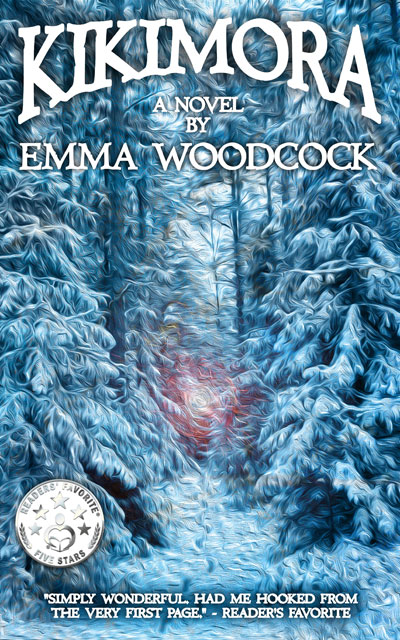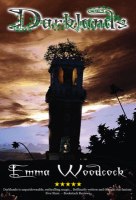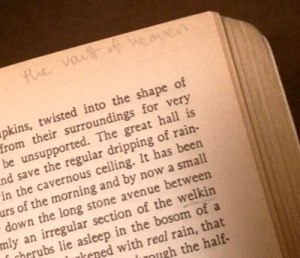In the summer I attended celebrations marking the 50th anniversary of my old school, Anthony Gell, in Wirksworth. As part of the celebrations, they aim to gather 50 short pieces of writing from people who worked or studied at Gell during its 50 years of community comprehensive education.
I was asked to contribute, and considered it an honour. But all the work it has taken to bring Kikimora to publication meant that I had not yet found the time. Last week I was gently reminded that the deadline is the end of November, and today I finally sat down to write my piece. It ended up going somewhere I hadn’t anticipated.
“Why bother to learn a dead language?” people typically ask after hearing I have a GCSE in Latin. “It’s useless.”
Everyone knows that you learn Latin by sitting in a classroom reciting en masse, “Amo amas amat…” – the conjugations of the verb to love. I’m afraid I didn’t do much of that in my class of one, sitting in the office of my Headmaster, Mr Pearce. Latin was not on the curriculum of this small, rural comprehensive, but Mr Pearce was more than happy to teach anyone who showed interest.
Why did I want to learn it? I’m not even sure. Something to do with a general interest in ancient history, with mythology and magic – those were the things I associated with Latin. Though if my interests had lain elsewhere I suppose I might have associated it with medicine, with biology or with the church.
What I didn’t realise I was signing up for was something which would alter the way I perceive language, the way I learn, and even the way I think.
Almost the first thing I was taught after amo amas amat, was to examine my existing vocabulary for associated words: amorous, paramour.
When I learnt puer (boy) I found: puerile.
Agricola (farmer): agriculture, agrarian.
Mare (sea): marine, maritime.
Nauta (sailor): nautical… and so on.
Latin words form the roots of countless other words, not just in English, but in many European languages (all of the so-called Romance languages – Romance as in Romans, not as in love).
Now whenever I encounter a word I don’t know I break it down into its constituent parts. What does it sound like? What root might it be formed from? It’s surprising how often this proves a useful technique – allowing you to at least get close to the word’s true meaning, even if not quite all the way.
What I learned in my Latin lessons was not a dead, useless language, but the ability to think around a problem, to analyse and dissect, to look past the unfamiliar and try and find something recognisable.
That is a valuable skill – particularly if you apply it to more than language. For instance, to culture, to creed, to lifestyle.
We live in dangerous times. There are many people who, for their own selfish reasons, want to foster a culture of us and them, to instil fear, distrust, suspicion, hatred. But most people – ordinary people who don’t have vested interests in arms, in land grabs, in oil, in religious fanaticism – aren’t so different from each other. Most people just want to feed their children, to love whomever they love, and go about their lives peacefully and without fear.
I’m writing this on Saturday 14 November 2015 as the world reels from the latest terrorist attacks in Paris, as the inevitable backlash against Islam rises again in the West, as the thousands of refugees remain mired in border camps throughout Europe, alternately vilified and beatified by a press pushed one way by public outcry and another way by their corporate paymasters.
I can’t help feeling that the world could be a better place if people everywhere learned to look beyond the unknown, the different, the perceived-to-be-threatening, and instead look for the familiar – people just like themselves, with the same desire to love, to nurture, to live in peace. Stop seeing them and see more kinds of us. After all, it is harder to gun down us, than to gun down them. Harder to blow up us than to blow up them. Harder to deny food and shelter to us, than to them.



